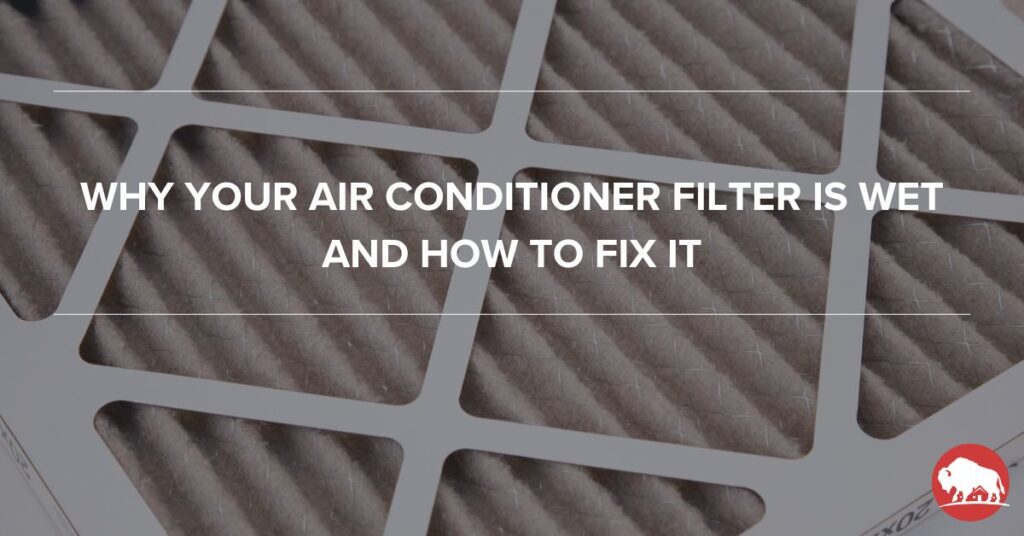Understanding Humidity and Its Effects
Why Controlling Humidity Matters
Humidity isn’t just about feeling a bit sticky. High humidity can make your home feel hotter, lead to health issues like mold allergies, and even cause structural damage to your house. Ideally, you want your home’s humidity levels between 30-50%. In places like Houston or Florida, where humidity can hit 90%, keeping that moisture out is a battle worth fighting.
Common Mistakes in Humidity Control
Setting the AC Fan to ON Instead of AUTO
One of the biggest mistakes homeowners make is setting their AC fan to ON instead of AUTO. The ON setting means your fan blows air constantly, while AUTO means the fan only runs during cooling cycles. Constantly running the fan might seem like it helps, but it actually prevents your AC from properly dehumidifying your home. Moisture that should be drained away gets blown back into your house, making things worse.
How Your HVAC System Controls Humidity
AC’s Dual Role: Cooling and Dehumidifying
Your AC isn’t just about cooling; it also dehumidifies. When warm air from your home passes over the cold coils of your AC, moisture condenses on the coils and drains away. But if your fan is set to ON, that moisture gets blown right back inside. Setting your fan to AUTO lets your AC do its job, keeping the air both cool and dry.
Diagnosing and Addressing HVAC Humidity Problems
Oversized or Undersized AC Units
Size matters. An oversized AC cools your home too quickly, not giving it enough time to dehumidify. On the flip side, an undersized AC can’t handle the load, leaving your home muggy. Make sure your AC unit is properly sized for your space.
Dirty Condenser Coils
Dirty coils can’t transfer heat effectively, which means your AC struggles to cool and dehumidify. Regular cleaning and maintenance are essential to keep your system running smoothly.
Refrigerant Leaks
Low refrigerant levels can hinder your AC’s ability to cool and dehumidify. If your AC isn’t cooling like it used to, you might have a refrigerant leak. Time to call in the pros for a check-up.
Practical Tips for Managing Home Humidity
Using Exhaust Fans in Kitchens and Bathrooms
Steam from cooking and showers adds to indoor humidity. Make sure your exhaust fans vent outside, not just into the attic or another part of the house.
Venting Large Appliances Outdoors
Appliances like dryers and ovens can pump moisture into your home. Venting these outside can significantly reduce indoor humidity.
Sealing Crawl Spaces
Unsealed crawl spaces can let ground moisture seep into your home. Seal them up to keep your home dry and mold-free.
Using Dehumidifiers
For those extra muggy days, a dehumidifier can be a lifesaver. Whether it’s a portable unit or a whole-home system, dehumidifiers help keep your air comfortable.
Optimizing Your HVAC System for Humidity Control
Regular Maintenance and Filter Changes
Dirty filters and coils can mess with your AC’s efficiency. Change your filters regularly and keep those coils clean to ensure your system can dehumidify effectively.
Fan Speed Settings
A high fan speed cools quickly but doesn’t dehumidify well. Set your fan speed to low to give your AC time to remove moisture from the air.
Installing Modern HVAC Systems with Humidity Control
Newer HVAC systems come with built-in humidity control features. If your system is outdated, upgrading can make a big difference in your home’s comfort.
Additional Tips for Reducing Humidity
House Plants
Plants like peace lilies and Boston ferns naturally absorb moisture from the air, helping to keep humidity levels in check. These plants not only beautify your space but also contribute to a healthier indoor environment.
Opening Windows and Doors
When the outdoor humidity is lower, open up your windows and doors to let fresh air circulate through your home. This simple action can help reduce indoor moisture levels and refresh your living space.
Taking Shorter Showers and Fixing Leaky Pipes
Long showers and leaky pipes add to indoor humidity. Fix leaks promptly and consider shorter showers to keep moisture levels down. Using exhaust fans during and after showers can also help expel excess humidity.
Using Moisture Absorbers
Products like moisture absorbers can be placed in various areas of your home to help control humidity levels. These products are especially useful in smaller spaces such as closets, bathrooms, and basements.
Improving Insulation
Good insulation not only keeps your home energy-efficient but also helps in maintaining optimal humidity levels. Proper insulation prevents outdoor humidity from seeping into your home, keeping it comfortable year-round.
Enhancing Your HVAC System with Smart Technology
Smart Thermostats
Modern smart thermostats can do more than just control the temperature. They can also monitor humidity levels and adjust your HVAC system to maintain optimal indoor air quality. Smart thermostats learn your preferences and can automate adjustments, ensuring your home stays comfortable with minimal manual intervention.
Humidity Sensors
Adding humidity sensors to your HVAC system can provide real-time data on indoor humidity levels. These sensors can work with your thermostat to automatically adjust settings, maintaining a balanced indoor environment without constant adjustments from you.
Integrating HVAC with Home Automation Systems
Integrating your HVAC system with a home automation system can give you even more control over your indoor environment. Automation systems can coordinate between your HVAC, dehumidifiers, and exhaust fans, optimizing the overall climate control of your home. You can set schedules, monitor performance, and make adjustments from your smartphone, making it easier to manage humidity levels efficiently.
Final Thoughts
Investing in the right HVAC system and following best practices for humidity control can significantly improve your home’s comfort and air quality. Regular maintenance, using technology like smart thermostats and humidity sensors, and implementing simple strategies like using exhaust fans and moisture absorbers will help you keep your home at the ideal humidity level. By taking these steps, you’ll not only enhance your living environment but also protect your home from the damaging effects of excess moisture.
Managing humidity in your home is essential for maintaining comfort, health, and the integrity of your living space. As we’ve explored, your HVAC system plays a crucial role in this process. Setting your AC fan to “AUTO” rather than “ON” allows your system to properly dehumidify the air, while regular maintenance like cleaning coils and changing filters ensures optimal performance. Additionally, using exhaust fans, sealing crawl spaces, and considering a whole-home dehumidifier can significantly reduce indoor humidity levels. By implementing these strategies, you can create a more comfortable, healthier environment free from the oppressive effects of excessive moisture. Stay cool and dry, and enjoy a more pleasant living space.






